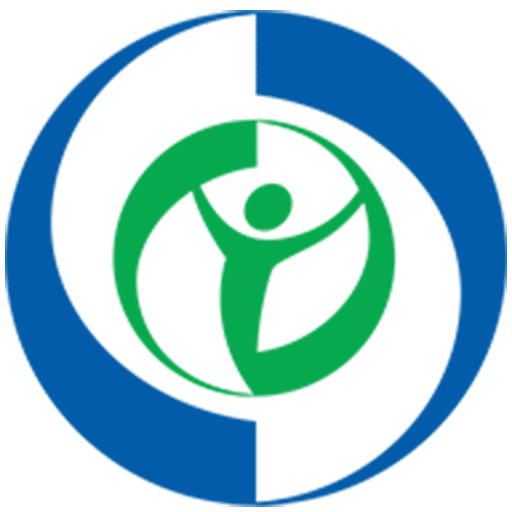Glossary of Terminology
For the most up-to-date information and terminology related to the National Diabetes Prevention Program, including the CDC’s Diabetes Prevention Recognition Program, please visit the CDC’s site here.
For the most up-to-date information and terminology related to the Medicare Diabetes Prevention Program (MDPP) Expanded Model, please visit CMS’s site here.
Below is a list of terminology that may be helpful as you navigate the information on this website:
0403T and 0488T Codes = Current Procedural Terminology (CPT) category III codes (temporary codes for emerging technology, services, and procedures) intended to be used by CDC-recognized organizations that provide nonclinical National DPP lifestyle change program services. Code 0403T signifies programs that are provided in-person and can be billed once per day. Code 0488T signifies a program delivered online. The 0488T code is only billable once per 30 days. Neither of these codes should be used for individuals with established diabetes.
1115 Waiver = Section 1115 of the Social Security Act gives the Secretary of Health and Human Services the authority to approve experimental, pilot, or demonstration projects that promote the objectives of the Medicaid program.
1915(b)(3) Waiver = Section 1915(b) of the Social Security Act allows states to use the cost savings generated from managed care delivery systems to provide Medicaid beneficiaries with additional services that are not otherwise covered under the state’s Medicaid program for managed care enrollees. Such services may include additional behavioral health services, maternity care programs, Nurse-Family Partnership programs, and other services. The additional services are subject to CMS approval and must be for medical or health-related care or other services as described in Medicaid federal regulation.
A1C test = A diagnostic blood test that measures an individual’s average blood sugar level over the previous three months. It is different from the daily blood sugar checks people with diabetes perform and is often used to diagnose prediabetes and diabetes. Hemoglobin A1C levels between 5.7% and 6.4% mean an individual is living with prediabetes. Levels of 6.5% or higher mean an individual is living with diabetes.
Accountable care organization (ACO) = One of the most common types of alternative payment arrangements in the transition to value-based health care. ACOs are groups of health care providers who are responsible for the cost and quality outcomes of a defined population of patients.
Alternative Payment Model (APM) = A payment approach that gives added incentive payments to provide high-quality and cost-efficient care. APMs can apply to a specific clinical condition, a care episode, or a population. Bundled payments are an example of an APM whereby a fixed payment is paid to cover a complete set of related services for a clinical episode.
Budget neutral = Over the course of a demonstration (or 1115 waiver period), federal Medicaid expenditures will not be more than what federal spending would have been without the waiver.
CDC-recognized organization (recognized organization) = An organization that offers the National DPP lifestyle change program and has received recognition from CDC’s Diabetes Prevention and Recognition Program (DPRP).
Centers for Disease Control and Prevention (CDC) = a federally funded branch of the U.S. Public Health Service under the Department of Health and Human Services charged with the investigation and control of contagious disease in the nation.
Centers for Medicare and Medicaid Services (CMS) = a federal agency that administers the nation’s major health care programs including Medicare, Medicaid, and Children’s Health Insurance Program (CHIP).
CMS’ Preventive Services Rule = A rule change issued by CMS in April 2014 that allows state Medicaid agencies to reimburse for preventive services provided by professionals that may fall outside of a state’s clinical licensure system, as long as the services have been initially recommended by a physician or other licensed practitioner.
Cohort = A cohort is a set of participants in a lifestyle change program. A completed cohort is a cohort that has a fixed first and last session and runs for 12 months. A CDC-recognized organization can have multiple cohorts running at the same time and may have a mix of participants with different payer types.
Community-based organization (CBO) = Public or private not-for-profit entities that provide specific services to a community or population within a community.
Community health worker (CHW) = An umbrella term that includes community health representatives, promotores, peers, and other workforce members who are frontline public health professionals that share life experience, trust, compassion, cultural and value alignment with the communities where they live and serve.
Current Procedural Terminology (CPT) = A medical code set that is used to report medical, surgical, and diagnostic procedures and services to entities such as physicians, health insurance companies, and accreditation organizations. The American Medical Association is responsible for revising, updating, and modifying CPT codes, descriptors, rules, and guidelines.
- CPT Category I Codes = Five digit codes that describe a procedure or service.
- CPT Category II Codes = These codes are used to track the performance of certain services and/or test results that contribute to quality patient care.
- CPT Category III Codes = Used to designate newly emerging technologies and to track their usage in the medical community.
Delivery System Reform Incentive Payment (DSRIP) = A type of Medicaid reform project, included in 1115 waivers, that allows providers or payers participating in the demonstration to receive financial support from a pool of state and federal dollars for implementing delivery system or payment reforms in a designated region.
Diabetes Action Plan = Legislation passed to establish a collaborative process across state agencies to ensure state legislators and other policymakers are strategically taking steps toward reducing the prevalence of type 2 diabetes. Agencies typically involved include the Medicaid agency, the state department of health, and the agency responsible for state employee health benefits.
Diabetes Advocacy Alliance (DAA) = The Diabetes Advocacy Alliance (DAA) is diverse in scope, with its members representing patient, professional and trade associations, other non-profit organizations, and corporations, all united to change the way diabetes is viewed and treated in America. Since 2010, the DAA has worked with legislators and policymakers to increase awareness of, and action on, the diabetes epidemic.
Diabetes incidence = Refers to the occurrence of new cases of diabetes in a population over a specified period of time.
Diabetes Prevention Program (DPP) = The 2002 NIH original research study which showed that making modest behavior changes helped participants lose 5% to 7% of their body weight and reduced the risk of developing type 2 diabetes by 58% in adults with prediabetes (71% for people over 60 years old).
Diabetes Prevention Recognition Program (DPRP) = The quality assurance arm of the National DPP charged with evaluating organization performance in effectively delivering the lifestyle change program with quality and fidelity. The DPRP awards CDC recognition to organizations that are following a CDC-approved curriculum and achieving meaningful results with participants based on established evidence-based national standards.
Dual eligible = Low income beneficiaries who are enrolled in both Medicare and Medicaid. Medicare is the primary payer and Medicaid is the “payer of last resort.”
Electronic health record (EHR) = An electronic record of health-related information on an individual that can be created, gathered, managed, and consulted by authorized health care providers and staff.
Fasting plasma glucose = A simple blood test that is taken after fasting to measure the current level of blood glucose. Can be used to help diagnose prediabetes or diabetes.
Federally Qualified Health Center (FQHC) = A private or public non-profit health center that receives grant funding from the Health Resources and Services Administration (HRSA) to provide comprehensive health care services to medically underserved areas and populations.
Fee schedule = A list of the maximum rate a payer will allow for services, with the definition of services based on CPT and ICD-10 codes.
Healthcare Effectiveness Data and Information Set (HEDIS) = A tool used by more than 90 percent of America’s health plans to measure performance on important dimensions of care and service.
Health equity = Defined by CDC as the state in which everyone has a fair and just opportunity to attain their highest level of health.
Health Information Technology for Economic and Clinical Health Act (HITECH Act) = Legislation created in 2009 to stimulate the adoption of electronic health records and supporting technology in the United States.
Health Insurance Portability and Accountability Act (HIPAA) = Legislation that provides data privacy and security provisions for safeguarding medical information.
Health related social needs (HRSN) = While social determinants of health (SDOH) are broader social conditions, health related social needs are more immediate individual or family needs impacted by those conditions, including housing insecurity, food insecurity, or lack of reliable transportation that can lead to decreased health and a lower quality of life.
In lieu of services (ILOS) = The ability for states and managed care plans to cover services or settings that are substitutes for services or settings covered under a state’s Medicaid State Plan. An ILOS can be utilized by states and their managed care plans to strengthen access to care by expanding settings options and address certain Medicaid enrollees’ health related social needs (HRSN) in order reduce the need for future costly state plan-covered services.
International Classification of Diseases (ICD-10) = A system used by physicians and other health care providers to classify and code all diagnoses, symptoms, and procedures recorded in conjunction with hospital care in the U.S.
Lifestyle Coach = Individuals trained to use the CDC–approved curriculum by a CDC approved training entity. These individuals must have the knowledge and skills to effectively deliver the program. Lifestyle Coaches can be clinical or nonclinical; they lead the lifestyle change program sessions, support and encourage participants, and collect and report program data as needed. Note: the term “Lifestyle Coach” was originally not capitalized in the context of the National DPP.
Medicaid = Provides health coverage to millions of Americans, including eligible low-income adults, children, pregnant women, elderly adults, and people with disabilities. Medicaid is administered by states, according to federal requirements. The program is funded jointly by states and the federal government.
Medicaid Coverage for the National DPP Demonstration Project = In 2016, CDC in partnership with NACDD, provided funding to state Medicaid agencies in Maryland and Oregon for a demonstration project. The purpose of this project was to demonstrate how state Medicaid agencies can promote Medicaid delivery models for the National DPP lifestyle change program through managed care organizations and/or accountable care organizations. To learn more, visit the Medicaid Coverage for the National DPP Demonstration Project page of the Coverage Toolkit.
Medicaid enrolled provider = Qualified provider who enrolls in the state Medicaid program and can receive Medicaid reimbursement for services rendered to beneficiaries.
Medicaid federal match = The federal government’s share of the cost of covered services in state Medicaid programs. Federal Medicaid match can be claimed for both direct service costs as well as administrative costs. The statutory minimum is 50 percent with a maximum of 83 percent.
Medicaid managed care organization (MCO) = Provides for the delivery of Medicaid health benefits and additional services through contracted arrangements between state Medicaid agencies and managed care organizations that accept a set per member per month payment for these services.
Medicaid Managed Care Performance Improvement Projects (PIPs) = Federally mandated quality improvement projects developed and conducted by Medicaid managed care organizations (MCOs). PIPs can focus on either clinical or nonclinical areas and topics range from improving diabetes care and management, to reducing unnecessary hospital readmissions and emergency department visits, to addressing substance use disorders.
Medicaid State Plan = A contract between a state and the federal government describing how that state administers its Medicaid program.
Medical Loss Ratio (MLR) = The percentage of insurance premium dollars spent on health care claims and expenses.
Medicare = The federal health insurance program for people who are 65 or older, certain younger people with disabilities, and people with End-Stage Renal Disease (permanent kidney failure requiring dialysis or a transplant).
Medicare Access and CHIP Reauthorization Act (MACRA) = In April 2015, Congress enacted MACRA legislation that alters the method by which physicians and other health care providers are paid for Medicare Part B services.
Medicare Administrator Contractor (MAC) = regional contractors that process enrollment applications and Medicare fee-for-service (FFS) claims. There are seven MACs divided across twelve jurisdictions in the U.S.
Medicare Advantage (MA) = Medicare Advantage Plans are another way to get Medicare Part A and Part B coverage. Medicare Advantage Plans, sometimes called “Part C” or “MA Plans,” are offered by Medicare-approved private companies that must follow rules set by Medicare. Medicare pays MA plans a per member per month amount to provide all Medicare part A and B benefits.
Medicare Diabetes Prevention Program (MDPP) = The Medicare Diabetes Prevention Program expanded model is a structured intervention available to Medicare (Part B) beneficiaries with the goal of preventing type 2 diabetes in individuals with an indication of prediabetes. CDC-recognized organizations must apply to become an “MDPP Supplier” to be able to receive reimbursement.
Medicare Diabetes Prevention Program supplier = MDPP suppliers must 1) enroll under Medicare; and 2) have CDC full or preliminary recognition.
National Association of Chronic Disease Directors (NACDD) = The National Association of Chronic Disease Directors (NACDD) and its more than 7,000 Members seek to strengthen state-based leadership and expertise for chronic disease prevention and control in states and nationally. Established in 1988, in partnership with the CDC, NACDD is the only membership association of its kind to serve and represent every chronic disease division in all states and U.S. territories.
National Committee for Quality Assurance (NCQA) = An independent non-profit organization in the United States that works to improve health care quality through the administration of evidence-based standards, measures, programs, and accreditation.
National Diabetes Prevention Program (National DPP) = A partnership of public and private organizations working collectively to establish, scale, and sustain an evidence-based lifestyle change program for people with prediabetes to prevent or delay onset of type 2 diabetes.
National DPP lifestyle change program = The translated adaption of the original clinical research study which established the Diabetes Prevention Program. It includes all of the following:
- is a year-long structured program (in-person group, distance, online, or combination) consisting of:
- an initial 6 month phase offering at least 16 sessions over 16–24 weeks and
- a second 6 month phase offering at least 1 session a month (at least 6 sessions)
- is facilitated by a trained Lifestyle Coach.
- uses a CDC-approved curriculum.
- includes regular opportunities for direct interaction between the Lifestyle Coach and participants.
- focuses on behavior modification, managing stress, and social support.
National Provider Identifier (NPI) = A unique 10-digit identification number issued to health care providers in the United States by the Centers for Medicare and Medicaid Services (CMS).
Participants = Individuals who meet CDC-eligibility criteria for the National DPP lifestyle change program and elect to enroll.
Payers = Commercial health insurance plans, employers (purchasers), or public payment systems, such as Medicaid and Medicare, that set service rates, collect payments, process claims, and pay provider claims.
Program supports = Participant offerings that are tied to lifestyle change program goals and/or facilitate participation, including healthy food vouchers, program-related items (such as a scale, food diary, pressure cooker), and services that address barriers (including transportation, child care, gym membership). Program supports are often nonfinancial.
Social determinants of health (SDOH) = Conditions in the environments where people are born, live, learn, work, play, worship, and age that affect a wide range of health, functioning, and quality of life outcomes and risks. Disparities in these conditions contribute to health inequities. Can also be referred to as social drivers of health.
State plan amendment (SPA) = A change to the Medicaid State Plan submitted to CMS for approval.
Third-party organization = An organization used by a commercial plan, self-insured employer, or Medicaid managed care organization (MCO) to assist with program delivery, such as by managing networks of CDC-recognized organizations, processing claims, or handling billing. They are generally paid a percentage of claims. Terms used to refer to third-party organizations acting in this capacity vary and may include third-party administrator (TPA), provider integrator, or management service organization (MSO).
Umbrella hub arrangement (UHA) = Entities that connect community-based organizations with health care payment systems to pursue sustainable reimbursement for programs such as the National DPP. Umbrella hub arrangement (UHA) is the overarching term that refers to the entire group, inclusive of the umbrella hub organization (UHO), subsidiaries, and the billing platform used to submit claims. The UHA may also operate with the support of external partners, including but not limited to, referral networks, health plans, and state health departments.
Umbrella hub organization (UHO) = The sponsoring organization of an umbrella hub arrangement (UHA) with the reach and resources to provide administrative services and coordinate partners.
Umbrella hub subsidiary organization = Community-based organizations that are part of an umbrella hub arrangement (UHA) and are delivering an evidence-based program(s) in their communities.
United States Preventive Services Task Force (USPSTF) = An independent panel of experts that publishes recommendations for evidence-based clinical preventive services. The Affordable Care Act requires a subset of health plans to cover items and services with a grade A or B USPSTF recommendation without cost-sharing for the relevant member. Counseling requirements referenced in some of the recommendations can be met through coverage of the National DPP lifestyle change program
Value-added services = Medical or nonmedical services provided by Medicaid managed care organizations (MCOs) that fall outside direct care costs. These are services MCOs use to attract Medicaid enrollees to their plans or improve health outcomes. Examples include health education classes, reduced limitations on medications, or incentive programs.









